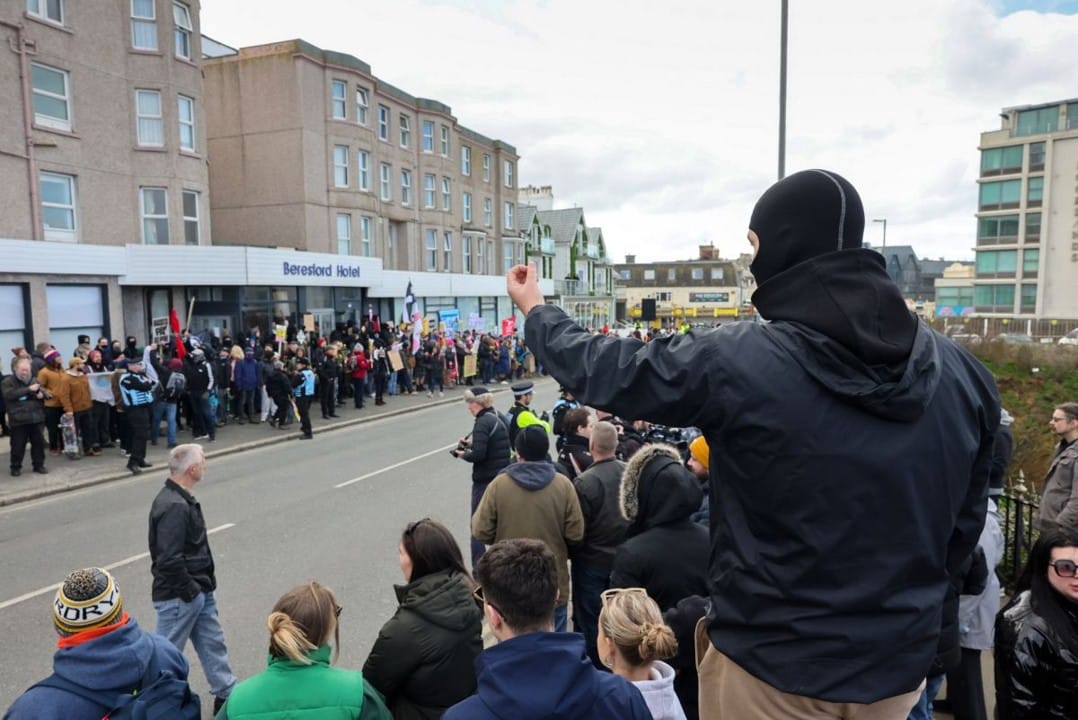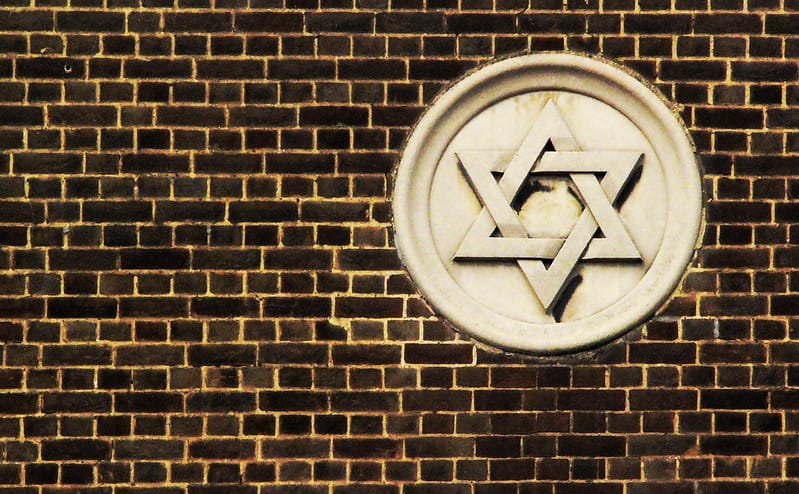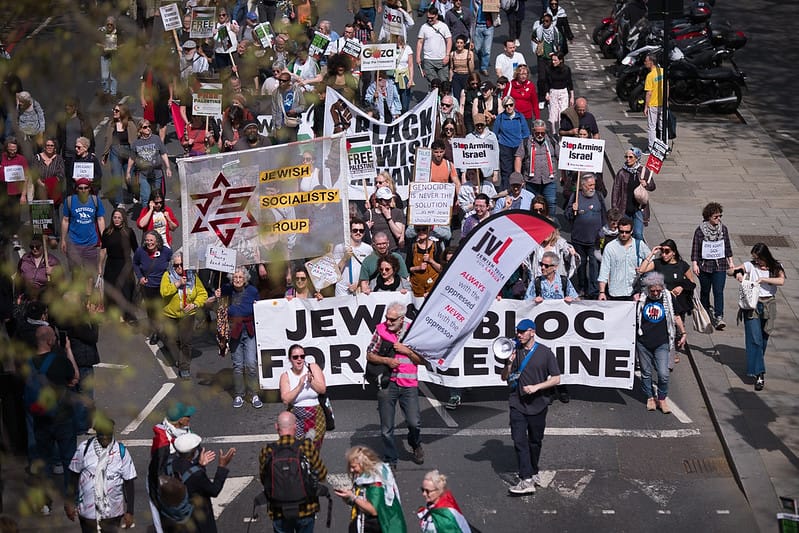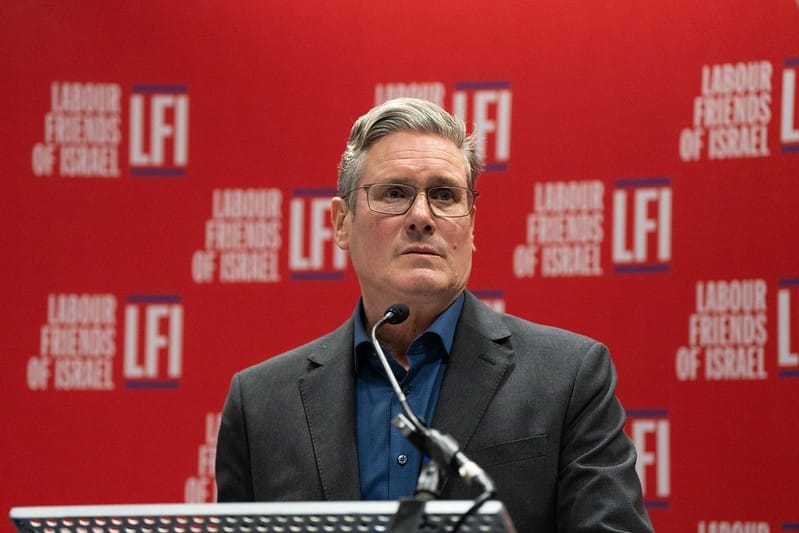For these neo-Nazis, even Christianity is too Jewish
With its claims to white indigeneity and affinity to paganism, Patriotic Alternative sits within a particularly radical transnational neo-Nazi network.

In early 2023, neo-Nazi party Patriotic Alternative (PA) was considered by antifascist researchers Red Flare to be “the largest and most significant fascist group in the UK”. The organisation, founded in 2019, had gained prominence as a result of its anti-migrant, anti-trans and anti-drag protests and propaganda – all connected in some way to its central concern that by 2066, “native British people are set to become a minority”.
More recently, however, that status has been dealt a significant blow. First, in April, PA underwent a major split as key organisers defected to form Homeland, a new fascist party focused on electoral politics (a perceived weakness of PA). Then, in May, neo-Nazi podcaster and PA associate James Allchurch was jailed for two and half years for uploading podcasts to his website, Radio Aryan, which advocated racial segregation and discussed hanging Black people and Jews.
A month later, prominent PA activist Kristofer Kearney received his own sentence of over four years on terrorism charges for posting extremist content on Telegram. A third friend of PA, ex-prison officer, podcaster, and active club organiser Ashley Podsiad-Sharpe, will be sentenced today after being found guilty in May of possessing terrorist material.
Nonetheless, the party continues to publish its regular slate of hate-filled podcasts and maintains a presence at anti-migrant actions, such as ongoing protests against the housing of asylum seekers in Llanelli, Wales. In addition, PA still receives support from prominent international fascist groups such as the Nordic Resistance Movement (NRM), evidenced by the latter’s participation in PA’s International Day of Pro-White Action – an annual campaign “designed to celebrate our people and raise awareness of the programme of population replacement taking place across the Western world” – in early August.
It appears, then, that PA is not going away. Indeed, with recent news that the Electoral Commission has rejected Homeland’s application to register as a political party – thus undermining the purpose of the split – PA may begin to regain legitimacy on the nationalist right. As it does so, it is worth considering what differentiates the party from other far-right groups in the UK, what ties it to international allies such as NRM, and what shapes its particular version of virulent antisemitism.
Perhaps surprisingly, the key to answering these questions lies in understanding the growth of a global strand of the far right that is positioning itself in opposition to Christianity.
An extremist network
From Donald Trump to Jair Bolsonaro and Viktor Orbán, many of the best-known fascist politicians in the world today connect their white supremacy to their Christianity. PA, however, occupies a different space on the far right. While it acknowledges the role of Christianity in the UK, it is not a Christian nationalist party, thus distinguishing it from other groups that, at first glance, appear to be its ideological allies.
Take, for instance, Britain First, whose religious stance is stated in an article on its website titled Christianity as the Foundation: “Christian traditions, values, morals and ethics have underpinned the development of Western civilisation for centuries, and Britain First believes that the only way that Britain may be saved from its current moral decline is by a resurgence of those Christian traditions”, it reads.
PA, on the other hand, recognises that “Christianity is an integral part of our cultural heritage and will continue to be promoted accordingly”, but adds the following injunction: “The state will also acknowledge ancient, native pre-Christian influences and protect sites of cultural significance to our ancestors.”
There is a crucial difference here. Whereas Britain First perceives its past and future greatness as being firmly rooted in Christendom, PA traces its lineage back to pre-Christian lands. This particular claim to white indigeneity and the focus on a pre-Christian past places PA in a very specific transnational neo-Nazi network.
Past and present associates of PA organisers include members of National Action (PA is considered to be a continuity group for the now-proscribed NA), NRM, Creativity (formerly known as the Church of Creativity), Counter-Currents Publishing, and key figures from the now defunct Iron March accelerationist forum, while at least one PA activist appears to count violent neo-Nazi separatist group The Order as an influence. Among these connections are some of the most radical and extremist formations on the global far right, both in terms of ideology and action.
While the links between these individuals and entities are vast and multifaceted, they all draw from a set of ideas broadly termed “radical traditionalism”, and particularly the work of 20th-century Italian fascist Julius Evola. This worldview argues that mankind must revolt against the degenerate modern world to return to a mythologised, native state of being – often temporally located in the ancient world – in which social organisation aligns with supposed natural hierarchies of race and gender. And for Evola and his adherents, Christianity is identified with degeneracy.
So why is this stream of the far right so eager to look beyond Christianity for its roots? While there are certainly various factors, a primary driver is simply their hatred of Jews.
Naturally, as a white supremacist group, the PA is deeply antisemitic. Its founder, the neo-Nazi Mark Collett, is a Holocaust denier who refers on his podcasts to the “zio-media”. And nearly every single dox of a PA activist comes with endless evidence of their personal antisemitism – such as Jeff Marsh, the party’s Welsh regional organiser, who is active at the Llanelli anti-migrant protests.
But those who embrace radical traditionalism often take this a step further. For them, it’s not simply that there is a globalist Jewish conspiracy controlling the world; Christianity itself is directly implicated. It is both a Semitic religion (and therefore not authentic to the Aryan people) that worships a Jewish god and his Jewish son, and, crucially, an insidious creation of the Jews intended to spiritually and psychologically weaken white Europeans with messages of pacifism, obedience and forgiveness.
For the most extreme elements in this ideological lane, the entire “Judeo-Christian” underpinning of the modern world must fall. While this is not the official position of PA – the organisation presents itself in a more moderate light given its aspirations of mass support, and thus its need to remain palatable to disaffected Tories – it is clear that the party is connected to those who do advocate this view, and can accommodate activists of this ilk within its ranks.
Embracing paganism
As a result of their uneasiness with Christianity, radical traditionalist groups often incorporate alternative religious systems and theologies into their political programmes. These include folkish Heathenry and Odinism (white supremacist forms of neo-paganism referencing Germanic pre-Christian practice and belief), naturalistic pantheism and esoteric Hitlerism.
While only some white supremacist groups are explicitly religious and actively practise a pre- or non-Christian religion, many others express their alignment with this ideology by invoking pre-Christian iconography (such as the runic alphabet) or its holidays. PA falls into the latter category, with social media posts celebrating Yule and a series of articles on its website covering the folklore and gods of the British Isles.
Perhaps most striking, though, are its lesson plans on pre-Christian faith, culture and practices designed for the children of its supporters through the PA Alternative Curriculum. In this homeschooling programme, the organisation’s purportedly indigenous white children can learn about “their history and culture in a balanced and age-appropriate manner, free from the shackles and ideology of the National Curriculum.”
The PA curriculum includes video lessons instructing children how to carve runes into wood, as well as teachings about how the days of the week and other common English language expressions originate from Old Norse runic words (“hello” comes from “Hail Odin”, if you didn’t know – and apparently no etymological dictionary does). There are additional lessons under the title From Yule to Christmas: The Anglo-Saxon Religious Journey, in which children learn about the northwest European roots of their people, the pagan gods they worshipped, and how and why the Anglo-Saxons became Christians.
Indeed, a consistent theme across the lessons is the notion that pre-Christian culture and faith persists despite Christianity into the modern day. Their true culture, therefore, is still with them.
PA’s embrace of paganism reveals the massive gulf between its outward persona and the true extent of its neo-Nazi ideology. Yet the party’s attempt to make room for both non- or anti-Christian worldviews as well as Christianity is relatively unusual on the far right; groups that more fully embrace a pre-Christian radical traditionalism have in recent years tended more towards separatism or terrorism than mass organising. How exactly this aspect of the organisation impacts its internal stability and leadership – particularly as National Action activists return from jail – and its relationship to other far-right groups in the UK (such as Britain First) remains to be seen.
What is certain is that the centrality of antisemitism to this fascist movement necessitates a Jewish antifascist response. But what this looks like isn’t immediately clear in a moment in which migrants, people of colour, trans people and drag performers (including the Jews among them) primarily experience the front-line material harm of fascist violence.
How can we assert a Jewish identity in anti-fascist action without reproducing the logic of the fascists – in which Jews are the true centre and asylum seekers are seen as mere tools of a Jewish conspiracy – and potentially sidelining those targeted? And how do we take threats to Jewish life and Jewish communal spaces seriously without allying with a government that vilifies the very same groups as the fascists?
We have work to do and no time to waste.▼
Aaron B. Grant is a writer and researcher.
Author
Aaron B. Grant is a researcher of contemporary paganism and the far right.
Sign up for The Pickle and New, From Vashti.
Stay up to date with Vashti.



